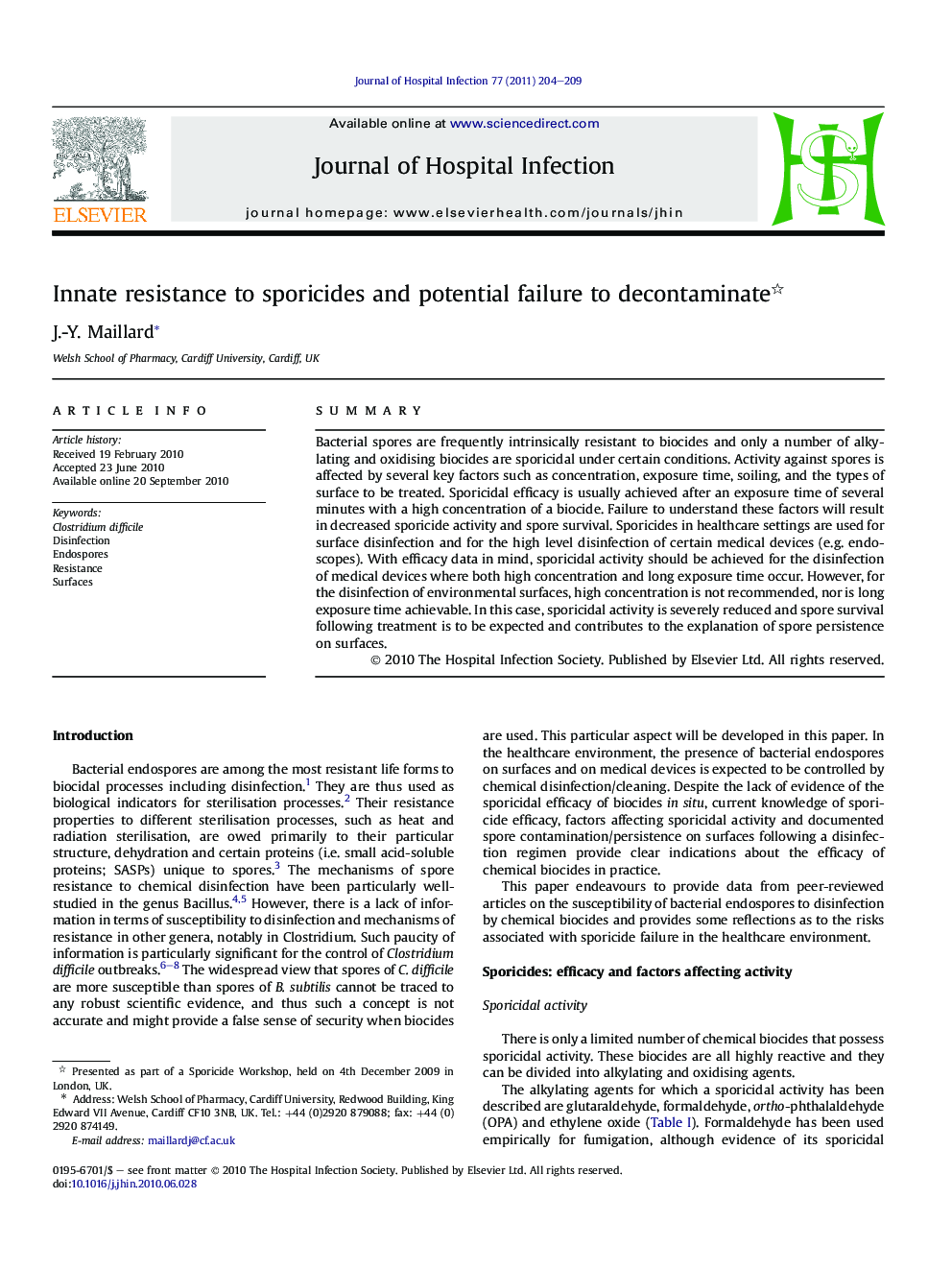| Article ID | Journal | Published Year | Pages | File Type |
|---|---|---|---|---|
| 6122484 | Journal of Hospital Infection | 2011 | 6 Pages |
Abstract
Bacterial spores are frequently intrinsically resistant to biocides and only a number of alkylating and oxidising biocides are sporicidal under certain conditions. Activity against spores is affected by several key factors such as concentration, exposure time, soiling, and the types of surface to be treated. Sporicidal efficacy is usually achieved after an exposure time of several minutes with a high concentration of a biocide. Failure to understand these factors will result in decreased sporicide activity and spore survival. Sporicides in healthcare settings are used for surface disinfection and for the high level disinfection of certain medical devices (e.g. endoscopes). With efficacy data in mind, sporicidal activity should be achieved for the disinfection of medical devices where both high concentration and long exposure time occur. However, for the disinfection of environmental surfaces, high concentration is not recommended, nor is long exposure time achievable. In this case, sporicidal activity is severely reduced and spore survival following treatment is to be expected and contributes to the explanation of spore persistence on surfaces.
Related Topics
Life Sciences
Immunology and Microbiology
Applied Microbiology and Biotechnology
Authors
J.-Y. Maillard,
